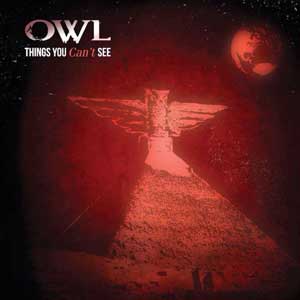 Chris Wyse just doesn’t have time to slow down. Calling in to talk with me last week, he had just returned home to New York after completing one stretch of a tour with Ace Frehley, and couldn’t take more than one day off before starting up rehearsals with his own band, Owl. It’s a pace Wyse may not love, but has gotten accustomed to over the years. Having recorded with everyone from Ace and Ozzy to Tal Bachman, (“She’s so High”) Wyse’s beyond-broad skill set has earned him status as a first-call studio pro. He can rip like a demon on the P Bass, but also has disciplined his skills performing classical and jazz on the upright bass.
Chris Wyse just doesn’t have time to slow down. Calling in to talk with me last week, he had just returned home to New York after completing one stretch of a tour with Ace Frehley, and couldn’t take more than one day off before starting up rehearsals with his own band, Owl. It’s a pace Wyse may not love, but has gotten accustomed to over the years. Having recorded with everyone from Ace and Ozzy to Tal Bachman, (“She’s so High”) Wyse’s beyond-broad skill set has earned him status as a first-call studio pro. He can rip like a demon on the P Bass, but also has disciplined his skills performing classical and jazz on the upright bass.
Now, after nearly a decade with The Cult, Wyse is ready for Owl’s third release, Things You Can’t See, out on July 28. Wyse says that with Owl, he feels he can return to the type of rock he played in his younger days, when he idolized musicians who blended attitude with technical proficiency. As a bassist/singer/lyricist/and producer with Owl, Wyse has a lot to do with the hard rock act’s sound and demeanor. But while he abstains from marathon solos, Owl’s catalog features some innovative bass grooves and textures. And you better believe Wyse plugs in his electric upright (through pedals!) on more than one track.
We got a chance to talk with Chris about Things You Can’t See, his trusted bass gear, and overall philosophy on music. Read the interview for more and check out Owl’s website for tour dates and more!
zZ: You’ve said Owl is kind of a chance for you to revisit the rocking you did in your youth. What were you into then?
CW: Even though I was dressing like a crazy ’80s kid, I wasn’t really in my late teens yet and I was playing the clubs and doing all this kind of stuff. It’s funny, when you’re younger, you’re trying to be more mature and when you’re older, you’re trying to hang on to your youth. And everybody thought I was older back then but I was just a kid. And now I go back to those solos and they’re totally outrageous. With the time changes and the athleticism to do it, honestly I’ve been going back to my youth and trying to keep up with my old self. I was already into Billy Sheehan, Eddie Van Halen. I would borrow from everybody with a sense of inspiration, not necessarily “I’ve got to play every single note.” I did it naturally and I’d be playing two or three things at once on the bass.
zZ: Having an upright bass on stage and being a frontman is pretty bold.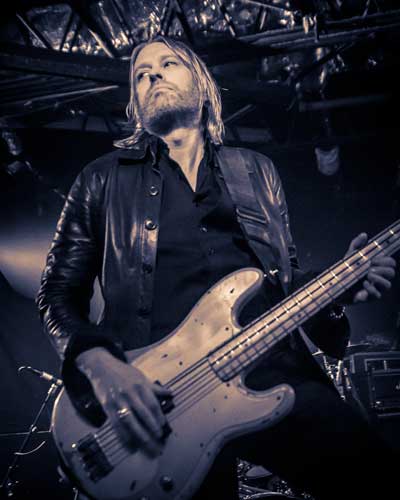
CW: I have to tolerate a lot because I have to rosin my bows, and I’ve got to make sure the tension on the bow is right. Once you’re singing on the mic you also have pedals on the floor and it’s quite a lot to deal with. It’s totally different than just plugging in with your P-Bass to an Ampeg and walking up to the mic and singing. Now, when you’re using the bow in and out of the song, you’re also making sure it gets thrown in the quiver properly and doesn’t land on the floor. And I do this all while the drummer is screaming at me to hurry up and get to the next song because we don’t want to have too much lag time.
It’s pretty intense. That’s why I just forgive myself during the show; it’s not gonna be perfect. I’ve been known to drop the bow and it misses the quiver so I have to improvise the rest of the song or some fan runs up and grabs the bow and gives it back to me. We do so many running around shows that I don’t have a steady tech. So it’s just constantly changing. That is really, really difficult at times, and the best thing I’ve learned is I have to give myself what I need, like I have to take a second to adjust. You have to assemble an electric upright bass, you don’t just pull it out of the bag and it’s ready to go. There are all these different positions and lengths of the posts, and I do different tunings, so it’s a lot.
zZ: But I’m sure all that work makes you appreciate your shows that much more.
CW: Yeah, you want to just make them good.
zZ: As far as bass guitars, what drew you to the P Bass?
CW: Well, it’s a classic and it just doesn’t offend anybody. the P Bass fits in, but it fits in like a ’57 Chevy — like how that belongs in the world of cars, it belongs in the world of basses. To me it’s the bass; you can get other basses, but you always have to have a P Bass. That was the original and Leo Fender nailed it. I would add one fret and that would be my only thing. And I have my bastard that’s got a ’54 neck with a ’95 body with a hipshot on it so I can detune quickly, and that’s kind of my number one bass.
To me it’s the bass…that was the original and Leo Fender nailed it.
zZ: So you prefer the thicker necks?
CW: There are different benefits to different things. I have kind of a baseball bat neck. It’s the sound that’s on every record that I’ve done with The Cult, back to Tal Bachman, all the Owl records. I also use that on the Ace Frehley record, you can hear that on the song “Starship.” I can get a classic tone out of that or I can get a punch out of it. That’s what I love about bass, put up a little top and midrange with new strings, and I’m two-hand tapping and it sounds like a piano: crystal-clear. That to me is what a P Bass sound is — it’s everything.
zZ: And you’re using Ampeg SVT heads?
Yeah, the Vintage Reiusses. I like the breathability and classic tone that sounds like big tubes. I feel that particular one for me is the most versatile. I’ll have the black series too, the basic classics which are great, but the one I’ve always loved the most is the Silverface Vintage Reissue. It’s like the cleanest TV picture you can get while the tubes are just blazing behind the screen. It’s something different than getting really high tech, it’s a lot of tube sound and there’s something about the cabinets. I can’t explain it but it’s got a very tight yet warm sound.
zZ: And they look awesome on stage, too.
CW: That’s the best amp in the world. I’m that kind of person, I’m gonna play a P Bass through an Ampeg even though I’m doing some sophisticated stuff and you might be expecting a fancy bass with a fancy amp.
That’s the best amp in the world. I’m that kind of person, I’m gonna play a P Bass through an Ampeg even though I’m doing some sophisticated stuff.
zZ: What pedals are you using?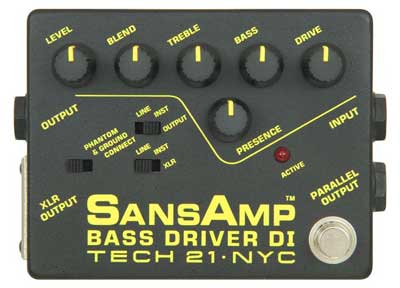
CW: Mainly overdrives, like a SansAmp overdrive and a wah and delay and reverb for some atmosphere with the orchestrated bits I do on the bass. Bassists are using overdrive on everything now. You might not realize it, but half the stuff on the radio now has overdriven bass. By the time you hear it in the mix, it might sound kind of clean because they’re shelving off the bottom of the mix, so you’re kind of just hearing the bottom of the bass, but you hear a lot of fuzzy bass tones these days and I feel like I’ve kind of spearheaded that thinking.
zZ: To not be afraid of overdriven bass?
CW: Yeah, the first Cult record I did had a song called “War” on it, with the bass right up in the front with harmonics and delay and wah wah, and then it kicks into this big fat ass bass riff on its own with Ian’s vocal. I always thought that was one of the coolest things because it allowed the listener to hear the personality of the bass that was on there. And when you cover it up with the rest of the band you might not realize the bass had such an interesting tone on its own.
zZ: What is your advice for young bassists trying to shape their own sound?
Well, I bumped into Billy Sheehan after chasing him around New York back in the day when I was a teenager. I remember I was like 15, I had my crazy Spandex outfit on and I met him out in front of the venue in Albany, New York. I remember shaking his hand and feeling like his callouses weren’t all that gnarly, they were kind of soft. He was saying yeah that’s more in the beginning, if you’re playing all the time like me they’ll just kind of even out. And I was like, “my hands are so calloused.” And my friends were like, “he plays all the same stuff you do Billy,” which wasn’t really true but I was listening to all his records and trying to figure out what he did. He said “oh that’s great, but make sure the one thing you do though, is come up with your own style even though you’re learning my stuff.”
I think that was kind of an interesting experience outside the venue. And then I couldn’t get in, I tried to sneak in twice and use a friend’s ID, but I signed his name wrong so they kicked me out, but then Billy said “I’ll let you in as long as you don’t drink or get in any trouble. Don’t say anything, I didn’t do it but there’s this back alley door; I’m just gonna leave it open just by accident but it’s not me that’s gonna do it.” So he opened up the side door for me in the alley up at 10:30, just like he said he would. I got to go in and catch the show.
zZ: That’s such a cool memory to have.
CW: Yeah it was really cool. I got bounced out because the bouncer saw me and he literally came down into the pit, picked me up with just a bear hug and walked me out just as Billy Sheehan was doing a solo. To round out your question, I got to learn the upright bass as well and I became more of a composer and a signer, so I rounded it out differently than just focusing on those things, but of course I was just a kid then.
zZ: Any current bands that are sparking your interest?
CW: I really dig Vintage Trouble. I’m really proud of those guys; they’re opening up for AC/DC, it’s just unbelievable. Their last record was awesome and I’ve done all-star things with Ty the singer, actually with Paul Stanley of all people, and KISS-related things are around me sometimes which is kind of neat as a KISS fan. There’s a lot of great stuff coming out all the time, but I would look to more classical and jazz and just encourage everyone to keep checking into other things other than the pop norm. Keep it versatile, keep it artistic, and keep it edgy as a result. I’m [touring] all over the place all the time and we need to step up strong as an educated country, not just an attitude country, and when you can back it you can do a lot. It’s so weird that a rock ‘n’ roll guy is standing up for education, but I saw a change very organically. And I travel, I’m in a town I used to play in 10 years ago again and you see differences, people don’t even know much about music like they did, so I’m happy to bring it back, I’m lucky.
zZ: Can you tell me a little bit about the songwriting and recording behind this new album?
CW: Well, the first was more written, the second a little less and the third one now was really just more inspired by little riffs I was throwing against the wall and a lot of the emotional content was kind of on a mystical tip and I was feeding on relationships like I often do. And you might be surprised, some of those lyrics may seem like they’re leaning into one of my girlfriends or something, but some are and some aren’t. Some of them could be your relationship with the world, your relationship with your friends, your co-workers, your band. With being on the road all the time like I am, I’m often frustrated. You’re always away from family and friends and then for many years now there’s no return home. So I have a lot of different frustrations than maybe someone who’s not traveling as much. But in the songwriting process, it becomes like a vent, like a sort of therapist, and it’s also stuff I feel like I can share with people. I feel like there’s always a bit of that for a musician, feeling self-important. But I’ve got a lot to say and share and that’s the reason why I do it, otherwise I’d just keep it to myself.
zZ: I’m sure you see at your shows how strongly those feelings can resonate with crowds of people.
CW: I remember seeing videos of Jim Morrison just screaming and how emotive it was and effective it was in the song and just crazy. And it made people feel like “oh my God, can you do that? Is that OK?” And I’m like, it’s just music, it’s just a movie, it’s just an artistic expression. Of course it’s OK.

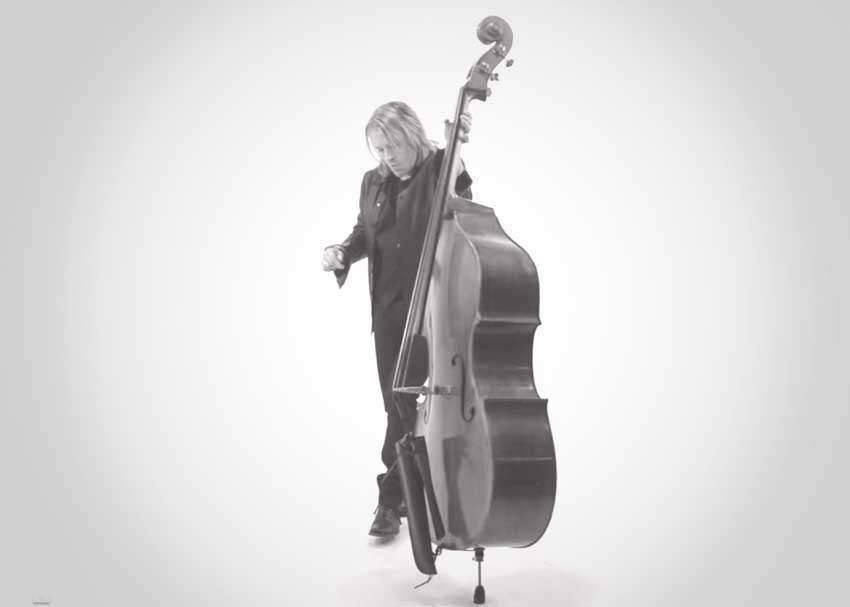
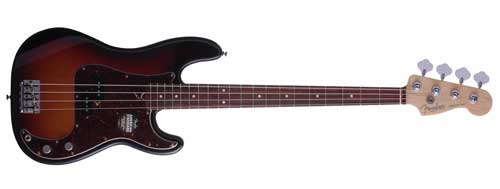
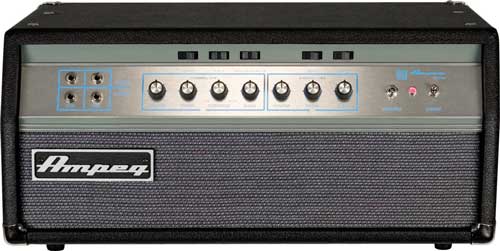


Leave a Reply